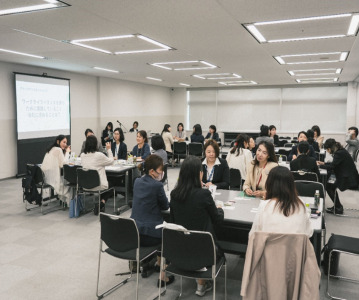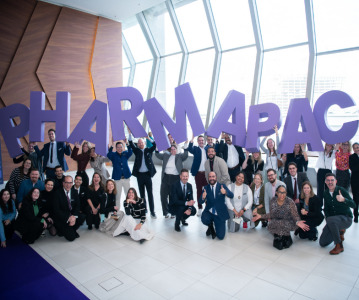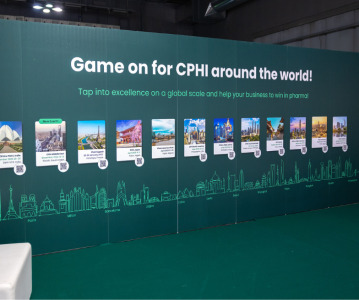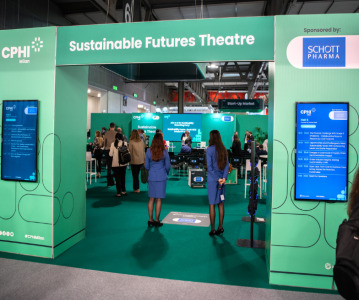Pricing system reform and generics trend apparent at CPHI Japan 2018

Bio and generic demand reflective of wider trends in the market – with overseas investments now prospering.
Increased international generic API companies and suppliers are reported at next month’s CPHI Japan 2018, traditionally an innovative drug focussed market, due to recent changes in the country. As uncovered earlier this year in the CPHI Japan 2018 report, after years of gradual reforms, the Japanese pharma economy is becoming extremely welcoming for generics and overseas manufactures – particularly those that can combine exemplary regulatory records with competitive pricing. By joining the Pharmaceutical Convention Inspection (PIC/S) scheme in 2014, Japan has opened its doors to new entrants.
In response, the event will open a finished dosage formulation zone (FDF) for 2018, building on the increasing diversity of the API supplier base. In total, 21,000 executives will come from a remarkable 56 countries, highlighting the country’s growing internationalisation, with 550 exhibitors from 30 countries – an increase of nearly 100 exhibitors in just 2 years. These include major suppliers of pharmaceutical ingredients, packaging, contract services as well as machinery and technology providers. Around 200 seminars will take place across the event.
Beyond the exhibition, over 9,000 pharma professionals will attend the CPHI Japan conference, with insights from the Ministry of Health, Labour and Welfare (MHLW), the Pharmaceuticals and Medical Devices Agency, the Japanese Society of Generic and Biosimilar Medicines, and the Japan Pharmaceutical Traders’ Association.
Another major development in Japan, especially for new market entrants, is the implications of the 2018 ‘Pricing system reform and introduction of cost-effectiveness assessment’ on which the conference will host a keynote address. Conversely, for buyers in the region, information and access to the international partners will be integral to establishing a robust supply chain, with the event also hosting an ‘International API Procurement Forum’ – specifically designed to empower the Government’s requirement for 80% generic market penetration by 2020.
“By bridging foreign manufacturers to local distributors successfully, we are able to create new investments and growth for our organization.” Cristine Fernandez, R.Ph Regulatory Affairs Consultant, Regicon.
Outside of solid dose drugs, biologics are also showing potential, specifically for antibodies, protein-based drugs and vaccines. The Japanese Government’s investments in industrial bio cluster projects and the creation of support programmes for bio ventures and universities has meant BioPh has become a much larger part of CPHI Japan in the last couple of years.
“CPHI Japan is an accurate bellwether of the wider market trends in the country, and this year we are seeing an acceleration of interest in generics and biologicals, particularly biosimilars – which the market has been previously resilient towards. But there is also more generally increased international interest and investment in all product classes – including innovative medicine – thanks to deregulation and streamlined new drug approval processes,” added Laura Murina, Brand Manager, CPHI Japan at UBM.
Related News
-
News Women in Pharma: Career Design for Women
Our monthly Women in Pharma series highlights the influential lives and works of impactful women working across the pharmaceutical industry, and how the industry can work towards making the healthcare industry and workplace more equitable and inclusive... -
News Pfizer may shift production back to US under Trump pharma tariffs
At the 45th TD Cowen annual healthcare conference in Boston, USA, Pfizer CEO Albert Bourla outlined the potential for Pfizer to shift its overseas drug manufacturing back to the US as pharmaceutical industry players weigh their options against Presiden... -
News Women in Pharma: Connecting accessible pharma packaging to patients – a Pharmapack Special
Throughout our Women in Pharma series, we aim to highlight how CPHI events encourage discussions around diversity, equity, and inclusion initiatives in the pharmaceutical industry. -
News CPHI Podcast Series: Packaging expert perspectives at Pharmapack 2025
This month's podcast episode sounds a little different, covering the latest event in Paris – Pharmapack 2025. Digital Editor Lucy Chard speaks to several experts direct from the floor of the show, bringing you right in on the action.&nbs... -
News Closing 2024 with Editors' picks of top articles from the past year
Coming to the end of 2024 and it’s certainly been a busy year, for CPHI and for the rest of the pharmaceutical and healthcare industry. Topics of conversation throughout the last 12 months have been varied, touching on the technical, to the polit... -
News SCHOTT Pharma’s sustainable journey with CPHI
Sustainability is of paramount importance in the pharmaceutical industry. See how a recent partnership between CPHI and SCHOTT Pharma has helped to highlight and accelerate their sustainability journey to reach global goals. -
News CPHI Podcast Series: Investing in a vision for the future of life sciences
In this episode Lucy Chard is joined by Rajiv Khatau to discuss the importance of looking into new therapeutic areas and some of the more niche areas of pharmaceuticals, and investing in the future of the industry. -
News Lessons from CPHI Milan 2024: Sunny Intervals for Pharma Manufacturing?
As the 2024 CPHI conference wrapped up in Milan, we caught up with L.E.K. Consulting – a global strategy consulting firm with deep expertise in pharma manufacturing – to discuss evolving market perspectives and business outlook.
Recently Visited
Position your company at the heart of the global Pharma industry with a CPHI Online membership
-
Your products and solutions visible to thousands of visitors within the largest Pharma marketplace
-
Generate high-quality, engaged leads for your business, all year round
-
Promote your business as the industry’s thought-leader by hosting your reports, brochures and videos within your profile
-
Your company’s profile boosted at all participating CPHI events
-
An easy-to-use platform with a detailed dashboard showing your leads and performance







